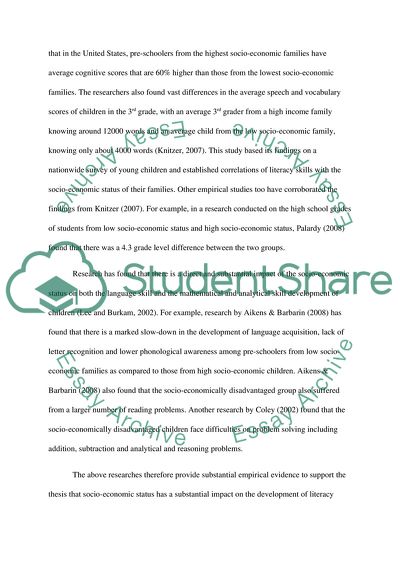Cite this document
(The Effects of Socioeconomic on School-Aged Childrens Literacy Skills Coursework Example | Topics and Well Written Essays - 1750 words, n.d.)
The Effects of Socioeconomic on School-Aged Childrens Literacy Skills Coursework Example | Topics and Well Written Essays - 1750 words. https://studentshare.org/psychology/1785464-the-effects-of-socioeconomic-on-school-aged-childrens-literacy-skills
The Effects of Socioeconomic on School-Aged Childrens Literacy Skills Coursework Example | Topics and Well Written Essays - 1750 words. https://studentshare.org/psychology/1785464-the-effects-of-socioeconomic-on-school-aged-childrens-literacy-skills
(The Effects of Socioeconomic on School-Aged Childrens Literacy Skills Coursework Example | Topics and Well Written Essays - 1750 Words)
The Effects of Socioeconomic on School-Aged Childrens Literacy Skills Coursework Example | Topics and Well Written Essays - 1750 Words. https://studentshare.org/psychology/1785464-the-effects-of-socioeconomic-on-school-aged-childrens-literacy-skills.
The Effects of Socioeconomic on School-Aged Childrens Literacy Skills Coursework Example | Topics and Well Written Essays - 1750 Words. https://studentshare.org/psychology/1785464-the-effects-of-socioeconomic-on-school-aged-childrens-literacy-skills.
“The Effects of Socioeconomic on School-Aged Childrens Literacy Skills Coursework Example | Topics and Well Written Essays - 1750 Words”. https://studentshare.org/psychology/1785464-the-effects-of-socioeconomic-on-school-aged-childrens-literacy-skills.


